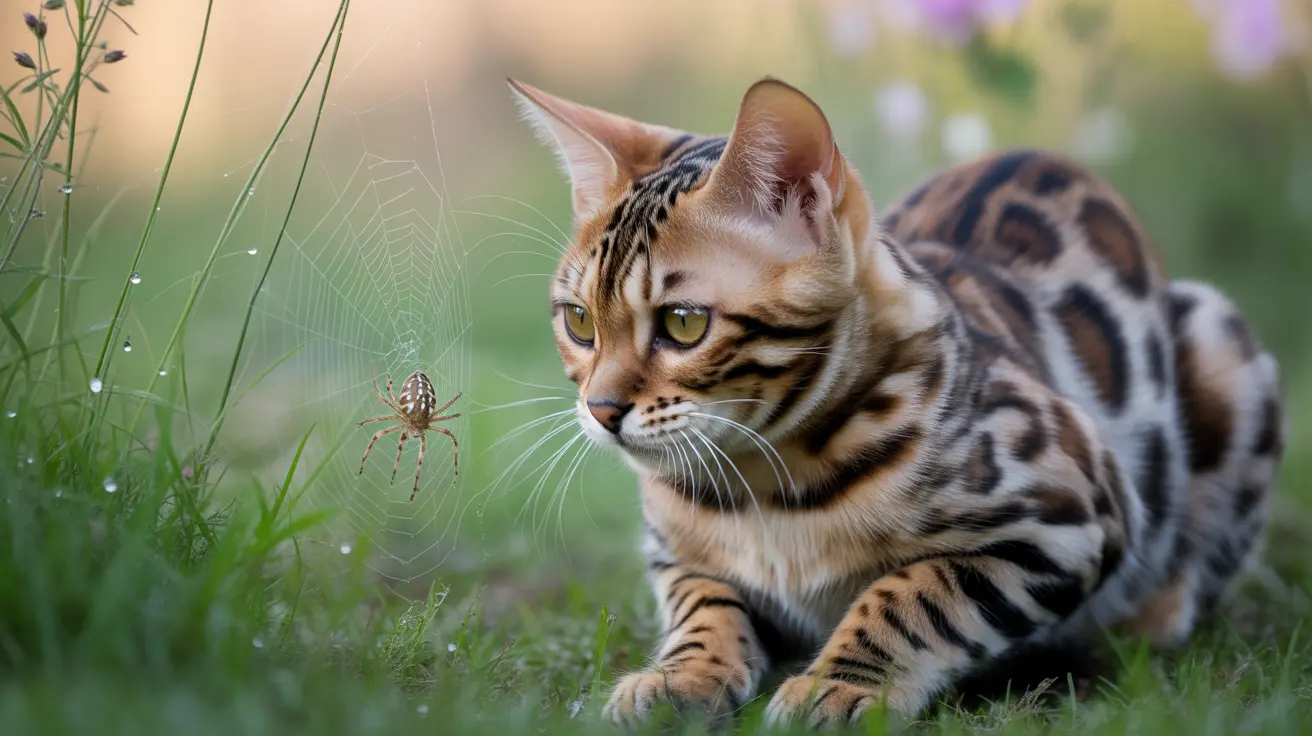Understanding Spider Bites in Cats
Most spiders encountered by cats are relatively harmless, as their fangs are typically too small to penetrate feline skin. However, two species in particular pose significant risks to cats in North America: the black widow and the brown recluse spider.
Black widow spiders deliver a potent neurotoxic venom that can cause severe systemic reactions in cats. Brown recluse spiders, while less immediately dangerous, can cause serious tissue damage that may take weeks or months to heal.
Recognizing Spider Bite Symptoms
Early detection of spider bites can be challenging since cats' fur often conceals the bite site. However, there are several key signs to watch for:
Immediate Signs
- Sudden pain or discomfort
- Excessive grooming of a specific area
- Swelling or redness
- Behavioral changes, such as hiding or aggression
Advanced Symptoms
- Formation of blisters or ulcers
- Muscle tremors or rigidity
- Difficulty breathing
- Drooling or vomiting
- Paralysis or collapse
First Aid for Spider Bites
If you suspect your cat has been bitten by a spider, take these immediate steps:
- Keep your cat calm and restrict movement
- Apply a cold compress to reduce swelling
- Clean the area gently with mild soap and water
- Document any changes in the bite site or behavior
- Contact your veterinarian immediately
When to Seek Emergency Care
Don't wait to seek veterinary care if you notice:
- Severe swelling or spreading redness
- Difficulty breathing or rapid breathing
- Muscle tremors or seizures
- Signs of severe pain or distress
- Any suspicion of black widow or brown recluse bite
Prevention Strategies
Taking proactive steps to prevent spider bites is essential:
- Regular home inspection and cleaning
- Remove spider webs promptly
- Keep storage areas organized and clutter-free
- Seal entry points around windows and doors
- Consider professional pest control services
Frequently Asked Questions
What are the common signs and symptoms of spider bites on cats to watch for?
Look for swelling, redness, pain, excessive grooming, and behavioral changes. More severe symptoms may include muscle tremors, difficulty breathing, and collapse.
How should I provide immediate first aid if I suspect my cat has been bitten by a spider?
Apply a cold compress, keep your cat calm, clean the bite area if visible, and contact your veterinarian immediately for guidance.
Which types of spiders pose the greatest danger to cats, and where are they commonly found?
Black widow and brown recluse spiders pose the most significant risks. Black widows are found throughout North America, while brown recluse spiders primarily inhabit the southwestern and south-central United States.
When should I take my cat to the vet after a suspected spider bite?
Seek immediate veterinary care if you suspect a venomous spider bite or if your cat shows any severe symptoms like difficulty breathing, muscle tremors, or extensive swelling.
How can I prevent my cat from getting bitten by spiders in and around my home?
Regular cleaning, removing spider webs, reducing clutter, sealing entry points, and maintaining organized storage areas can help prevent spider encounters.
Remember, while spider bites on cats are relatively rare, being prepared and knowing how to respond can make a crucial difference in your pet's outcome. When in doubt, always consult with your veterinarian for professional guidance and treatment.






